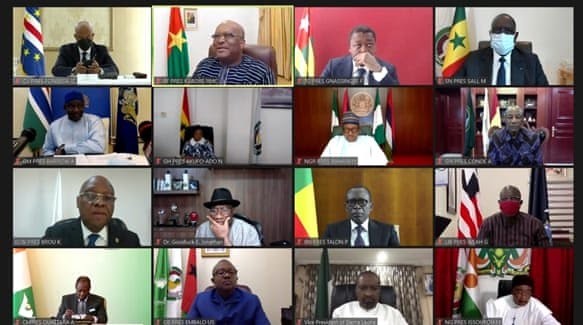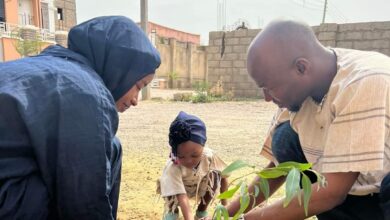Mali Coup: West African Leaders Call For Keita To Be reinstated

West African leaders have called for the ousted President of Mali, Ibrahim Boubacar Keïta, to be reinstated.
AFP news agency reported that the Economic Community of West African States (ECOWAS) said it would send envoys to ensure the return of constitutional order.
This comes after the United Nations’ Security Council called for the immediate release of all government officials.
The leaders of Tuesday’s coup say elections will be held in what they describe as a reasonable time.
They have also promised to respect international agreements on fighting jihadists.
There is an increased military presence outside government ministries in the capital, Bamako, but shops and businesses have been open.
Mali, a vast country stretching into the Sahara Desert, is among the poorest in the world and has experienced several military takeovers. It is currently battling to contain a wave of jihadist attacks and ethnic violence.
Mr Keïta won a second term in elections in 2018, but since June has faced huge street protests over corruption, mismanagement of the economy and disputed legislative elections.
There has also been anger among troops about pay and the conflict with jihadists.
“We have decided to immediately send a high-level delegation in order to ensure the immediate return of constitutional order,” the 15-member Ecowas said at the end of a video summit.
“We call for the restoration of President Ibrahim Boubacar Keïta as president,” it said in a closing statement read by the President of Niger, Mahamadou Issoufou.
“Mali is in a critical situation, with serious risks that a collapse of the state and institutions leads to reversals in the fight against terrorism and organised crime, with every consequence for all our community.”
Nigerian President Muhammadu Buhari said in a statement that Mali had “descended into political chaos” with “potential tragic consequences to Mali and the sub-region”.
The African Union earlier suspended Mali, saying military coups were “something of the past which we cannot accept anymore”.
French President Emmanuel Macron said that France and Germany condemned the coup and wanted the quickest possible transition to civilian rule.
France, Mali’s former colonial ruler, has several thousand troops based in Mali fighting Islamist militant groups and its Armed Forces Minister Florence Parly tweeted that this operation would continue.
Colonel Assimi Goita has presented himself as leader of the new military junta, which is calling itself the National Committee for the Salvation of the People (CNSP) but little is known about him.
Other members of the junta identified in the report include Col Malick Diaw, CNSP vice-president, and Col Ismaël Wagué, the air force deputy chief of staff, who had earlier read a statement on behalf of the group.
One of the parties in the M5 opposition coalition, CMAS, said it would support the coup leader in “developing a roadmap” towards new elections and called for rallies on Friday “to celebrate the Malian people’s victory”.
After meeting the coup leaders, the head of Mali’s opposition M5 movement, conservative Imam Mahmoud Dicko, announced he would be withdrawing from politics. No reasons were given.
Mr Dicko was one of the key figures in the huge street protests calling for Mr Keïta to resign.
It appears that mutinying soldiers took control of the Kati army camp, about 15km (nine miles) from Bamako, on Tuesday.
They then marched on the capital, cheered by crowds who had gathered to demand Mr Keïta’s resignation.
The soldiers then stormed the presidential buildings, arresting Mr Keïta and his prime minister and taking them to Kati Camp. The president’s son, the speaker of the National Assembly, the foreign and finance ministers were also reported to have been detained.
Appearing on TV on Tuesday night, President Keïta said he would resign as he did not want “blood to be spilled to keep me in power”.
Meanwhile, rebel troops who have taken power in Mali have said “a transitional president” would be appointed who would be drawn from either civilian or military ranks.
“We are going to set in place a transitional council, with a transitional president who is going to be either military or civilian,” military spokesman Ismael Wague said in an interview with France 24 TV channel on Thursday.
“We are in contact with civil society, opposition parties, the majority, everyone, to try to set the transition in place,” he said.
Support Our Journalism
There are millions of ordinary people affected by conflict in Africa whose stories are missing in the mainstream media. HumAngle is determined to tell those challenging and under-reported stories, hoping that the people impacted by these conflicts will find the safety and security they deserve.
To ensure that we continue to provide public service coverage, we have a small favour to ask you. We want you to be part of our journalistic endeavour by contributing a token to us.
Your donation will further promote a robust, free, and independent media.
Donate Here




